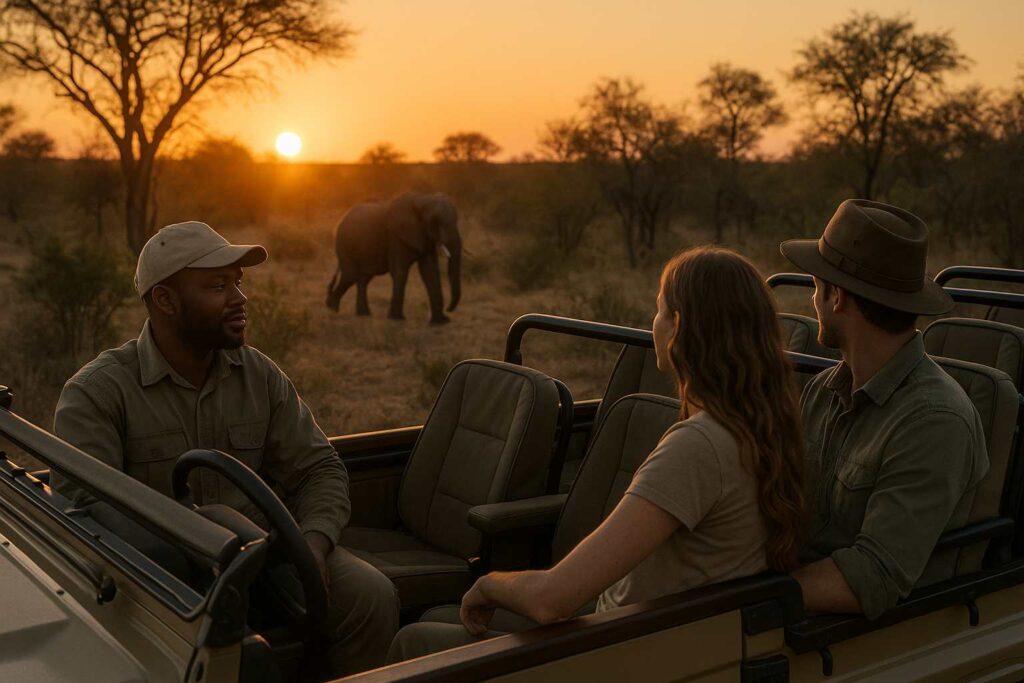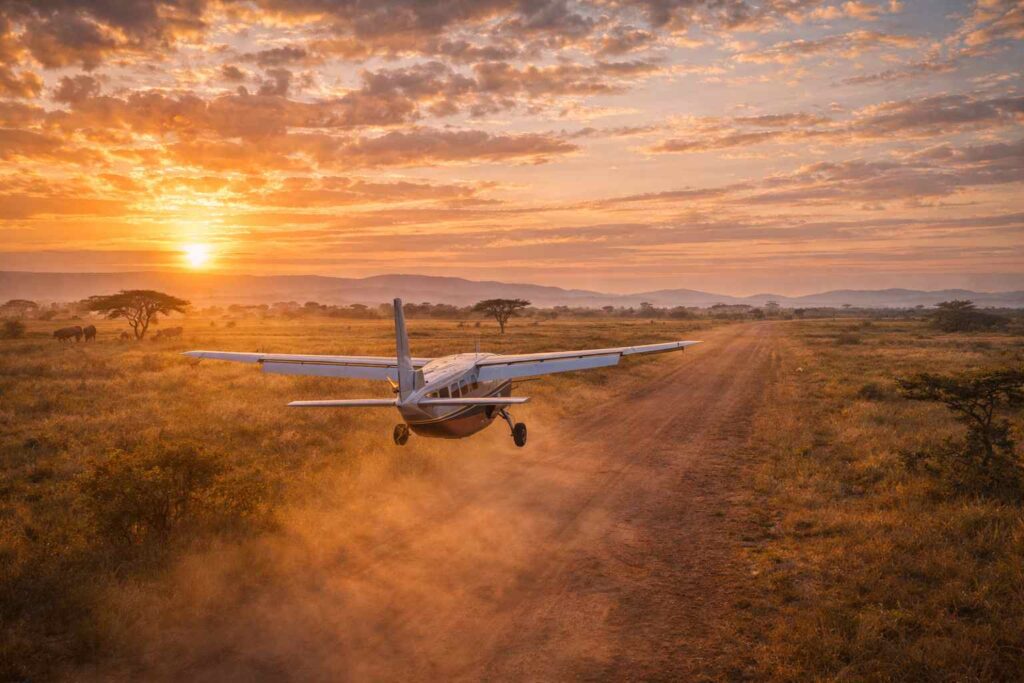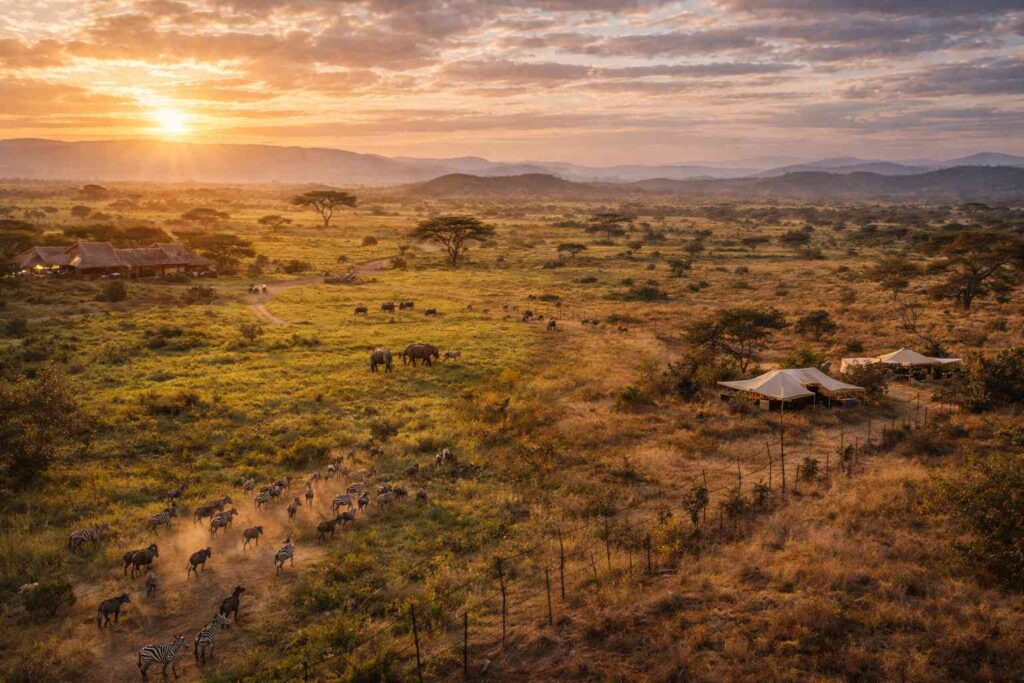“Is it safe?” is often the first question that comes to mind when planning a safari. Popular culture has long fueled the idea that African safaris are dangerous—roaring lions, treacherous terrain, or political instability. But what’s the truth? Here’s a down-to-earth, data-driven guide that breaks down the real risks (and common myths) to help first-time travelers feel confident and informed.
Myth vs. reality: are safaris inherently dangerous?
Reality check: African safaris, when operated by reputable providers, are remarkably safe. Millions of travelers visit safari destinations each year without incident. Wildlife encounters are tightly managed, professional guides are extensively trained, and camps are designed with guest safety in mind.
Most safari accidents are extremely rare and often linked to human error or rule-breaking, not wild animals or crime.
Wildlife encounters: powerful but predictable
Contrary to dramatic TV scenes, wild animals don’t seek out humans. Most incidents happen when guests disregard guide instructions or try to approach animals too closely.
Safety measures in place:
- Guided game drives maintain safe distances at all times.
- Lodges have fenced areas or patrols at night.
- Guests receive briefings on how to behave near wildlife.
In over 99% of safaris, wildlife encounters are thrilling but uneventful. The biggest risk? Your memory card running out of space!
Health and hygiene: a manageable concern
African lodges and safari operators that cater to international guests uphold high hygiene and medical safety standards. Water is often filtered or bottled, meals are professionally prepared, and rooms are kept clean.
Still, travelers should:
- Stay up to date on vaccines and malaria prevention.
- Pack basic meds and a personal first-aid kit.
- Purchase travel health insurance, including evacuation.
See our guide on health risks during safari for a full breakdown.
Crime and political instability: what’s the reality?
Most safari destinations—like Tanzania, Kenya, Botswana, South Africa, and Namibia—are stable and welcoming to tourists. Petty crime exists in major cities, but rarely affects visitors in national parks.
Tips to stay safe:
- Use reputable, licensed safari operators.
- Avoid venturing alone in unfamiliar urban areas.
- Keep valuables secure when transiting through airports or towns.
Once you’re in the bush, your biggest worry is whether you’ll see leopards or cheetahs first.
Camp safety and sleeping in the wild
Yes, you’ll hear hyenas or lions at night—and that’s part of the magic. But that doesn’t mean you’re in danger.
Safari camps are:
- Often fenced or patrolled by Maasai or other trained guards.
- Built to keep wildlife out of guest areas.
- Staffed by teams trained in guest safety and emergency protocols.
Follow lodge instructions (e.g., don’t walk alone at night), and you’ll be perfectly safe—even if elephants trumpet nearby.
Transport: road and air safety
Most safaris involve a mix of 4×4 game drives and light aircraft transfers. Both are generally safe but have some risks like bumpy roads or poor weather.
Mitigation tips:
- Choose operators with well-maintained vehicles.
- Wear seatbelts on long transfers.
- Follow crew instructions on bush flights and don’t overload baggage.
Self-driving is possible in some parks but is best suited for experienced travelers.
Children and families on safari
Safaris can be fantastic for families—many camps offer kids’ programs and family tents. But safety rules are stricter:
- Children must always be under adult supervision.
- Some lodges have minimum age limits.
- Certain activities (like walking safaris) are restricted by age.
Choose malaria-free parks (like Madikwe or Pilanesberg) for peace of mind.
Emergencies: is help available?
Even remote camps have contingency plans. Many are partnered with emergency response services that offer:
- Air evacuation via helicopter or bush plane.
- Satellite phones and radios for communication.
- Trained first-aid responders on staff.
With proper travel insurance, you’ll be covered even if an unexpected issue arises.
Conclusion
African safaris are not only safe—they’re one of the most enriching, well-managed, and professionally guided travel experiences you can have. The real danger? Falling so deeply in love with the wild that you’ll want to return again and again.
FAQs
Very rarely. Safari tents are zipped up and often elevated or guarded. Animals tend to avoid human scent and noise.
Yes, when led by certified guides. You’ll be briefed on behavior and accompanied by an armed ranger in most cases.
Bugs like mosquitoes are more common. Use repellent and sleep under nets. Snake sightings are rare and avoid human activity.
Absolutely. Many solo travelers join small-group safaris or stay at camps with communal dining and friendly staff.
Top-tier guides undergo rigorous training in wildlife behavior, safety, first aid, and guest communication.
In some parks, yes—but only for confident drivers. Stick to marked routes and follow park regulations.
Some (like Yellow Fever) may be required depending on where you’re coming from. Others are recommended. Always check ahead.
You’ll be evacuated to the nearest hospital, often by air. Camps are prepared for quick emergency response.
Yes, as long as they’re operated by licensed, reputable companies. Safety standards may vary slightly but basic protocols are followed.
Not if you’re with a guide. In fact, night drives offer a chance to see nocturnal species safely and ethically.






